第84章 LETTER XV(2)
The "Malay custom" (adat Malayu) seems to have been originally a just and equitable code, though ofttimes severe in its punishments, as you will see if you can get Newbold's _Malacca_, and was probably suited to the people; but it has undergone such clippings and emendations by the successive Rajahs or Sultans of these native States, that the custom now in force bears a very faint resemblance to the original adat. It is said, indeed, that each alteration has been for the worse, and that now any chief who introduces anything of his own will, justifies it as "adat Malayu." Mr. Swettenham, the Assistant Colonial Secretary, says that the few upright Rajahs who exist say that there is no longer any "adat Malayu," but that everything is done by "adat Suka hate," i.e., the custom by which a man can best suit his own inclination.
So it seems that a most queerly muddled system of law prevails under our flag, Mohammedan law, modified by degenerate and evil custom, and to some extent by the discretion of the residents, existing alongside of fragments of English criminal law, or more perhaps correctly of "justice's justice," the Resident's notions of "equity," overriding all else.* Surely, as we have practically acquired those States, and are responsible for their good government, we ought to give them the blessing of a simple code of law, of which the residents shall be only the responsible interpreters, modified by the true "Malay custom" of course, but under the same conditions which are giving such growing satisfaction to the peoples of India and Ceylon.
[*A Colonial friend tells me that he asked an English magistrate in one of the native States, by what law--English, Colonial, or Malay--he had sentenced some culprits to three years' imprisonment, and that the reply was a shrug, and "The rascals were served right."]
The oaths are equally inscrutable, and probably no oath, however terrible in formula, would restrain a Chinese coolie witness from telling a lie, if he thought it would be to his advantage.*
[*Sir Benson Maxwell, late Chief Justice of the Straits Settlements, to whose kindness I am much indebted, wrote to me lately thus: "In China I believe an oath is rarely taken; when it is, it is in the form of an imprecation. The witness cuts off a cock's head, and prays that he may be so treated if he speaks falsely." "Would you cut off a cock's head to that?" I once asked a Chinese witness who had made a statement which I did not believe. "I would cut off an elephant's head to it," he replied.
In the Colonial courts, Chinamen are sworn by burning a piece of paper on which is written some imprecation on themselves if they do not speak the truth.]
I went to see the jail, a tolerable building--a barred cage below, and a long room above--standing in a graveled courtyard, surrounded by a high wall. Formerly there were no prisons, and criminals were punished on the spot, either by being krissed, shot, or flogged. Here they have a liberal diet of rice and salt fish, and "hard labor" is only mild work on the roads. The prisoners, forty-two adult men, were drawn up in a row, and Mr. Syers called the roll, telling the crime of each man, and his conduct in prison; and most of those who had conducted themselves well were to be recommended to the Sultan for remission of part of their sentences. "Flog them if they are lazy," the Resident often said; but Mr. Syers says that he never punishes them except under aggravated circumstances. The prisoners are nearly all Chinamen, and their crimes are mostly murder, gang-robbery, assault, and theft.
About half of them were in chains. There is an unusual mortality in the prison, attributed, though possibly not _attributable_, to the enforced disuse of opium. We went also to the hospital, mainly used by the police, a long airy shed, with a broad shelf on each side. Mr. Klyne, the apothecary, a half-caste, has a good many Malay dispensary patients.
On our return, four Malay women, including the Imaum's wife, came to see me. Each one would have made a picturesque picture, but they had no manners, and seized on my hands, which are coarsened, reddened, and swelled from heat and mosquito bites, all exclaiming, "chanti! chanti!"--pretty! pretty! I wondered at their bad taste, specially as they had very small and pretty hands themselves, with almond-shaped nails.
In the evening the "establishment" dined at the Residency. After dinner, as we sat in the darkness in the veranda, maddened by mosquito bites, about 9:30, the bugle at the fort sounded the "alarm," which was followed in a few seconds by the drum beating "to quarters," and in less than five minutes every approach to the Residency was held by men with fixed bayonets, and fourteen rounds of ball-cartridges each in their belts, and every road round Klang was being patrolled by pickets.
I knew instinctively that it was "humbug," arranged to show the celerity with which the little army could be turned out; and shortly an orderly arrived with a note--"False alarm;" but Klang never subsided all night, and the Klings beat their tom-toms till daylight. I am writing at dawn now, in order that my letter may "catch the mail."
I. L. B.